Iran’s FM, UN Secretary-General Discuss Vienna Nuclear Talks
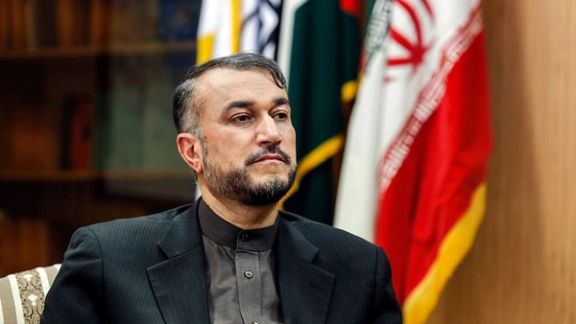
Iran's Foreign Minister Hossein Amir-Abdollahian spoke with UN Secretary-General Antonio Guterres about the Vienna nuclear talks, and the situation in Yemen and Afghanistan.

Iran's Foreign Minister Hossein Amir-Abdollahian spoke with UN Secretary-General Antonio Guterres about the Vienna nuclear talks, and the situation in Yemen and Afghanistan.
In the telephone conversation on Friday, Amir-Abdollahian reiterated that Iran is determined to reach a “good nuclear agreement” with the world powers in the shortest time possible.
"The negotiation process is on a positive track and the Islamic Republic has the serious will to reach a good agreement as soon as possible", he said.
He reiterated Tehran’s position that the United States is not trustworthy and Tehran needs verifications and guarantees for sanctions removal in the process of the negotiations to revive the 2015 nuclear deal.
Guterres hailed the progress in the talks and said the UN has always supported the nuclear agreement and international peace.
Amir-Abdollahian stressed the need for global attention to the humanitarian crisis in Afghanistan, saying, "Iran has received about 800,000 new refugees from Afghanistan in the past few months."
He also called for an inclusive government in Afghanistan and added that that Iran is ready to facilitate the delivery of humanitarian and financial aid to the refugees.
On Yemen, Amir-Abdollahian said the Islamic Republic backs a political solution to end the war and called on the UN secretary-general to intervene and stop the bombings in populated civilian areas.
Iranian-backed Houthi rebels have so far rejected UN calls for a ceasefire.
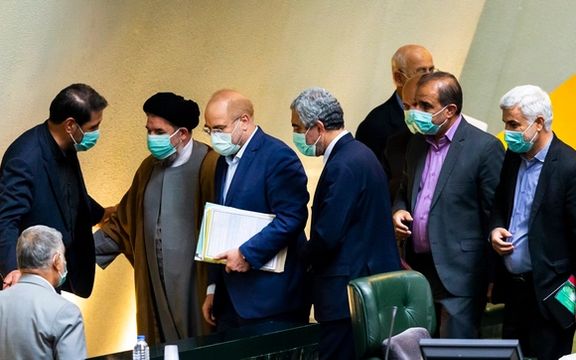
A top official in Iran has backtracked from his earlier support for direct talks with the United States under criticism, but the general mood remained supportive.
Of those who had openly supported the idea since Monday, Foreign Minister Hossein Amir-Abdollahian and national security chief Ali Shamkhani came under fire by hardliner Kayhan newspaper affiliated with the office of Supreme Leader Ali Khamenei.
Although Supreme Leader Ali Khamenei had said on January 9 that he had no objection to direct talks if circumstances so required, he did not back the supporters or opponents of the idea as controversy flared up this week.
This is consistent with his behavior in the past when he quickly distanced himself from some of his statements and refused to publicly take side with any particular argument. Although he allowed nuclear negotiations in 2013, he was quick to distance himself from the policy when Iran encountered problems.
Ali Shamkhani on Thursday phoned Kayhan to say that he has never wanted and would never want direct talks with the United States. Iranian officials habitually backtrack from their problematic statements and usually blame the media for misreporting what they had said.
Amir-Abdollahian has apparently not changed his mind yet and maintains his previous view about "a balanced approach to foreign relations" that means maintaining ties with the United States as well as with Russia and China.
Referring to supportive statements by parliamentarians such as the National Security and Foreign Policy Committee Spokesman Mahmoud Abbaszadeh Meshkini about the need for holding direct talks with America, reformist daily Sharq on Thursday speculated that the Iranian Parliament (Majles) generally supports the idea. The committee's chairman Vahid Jalazadeh also said that the United States is standing at the door of the 4+1 meetings and that now the doors could open and let America in if the situation so required.
According to Sharq, the Islamic Republic's difficult economic situation is the main reason why some of Iran's hardliner lawmakers are now agreeing with direct talks with the United States. Sharq wrote that the Foreign Ministry spokesman's statement on Monday regarding the possibility of quick release of a quick prisoner exchange and the latest statements by the foreign minister and President Ebrahim Raisi have been taken by some MPs as a green light for direct talks with the United States.
Iran Diplomacy, a website close to the Iranian foreign ministry on Wednesday pointed out that calls for making direct contact with the United States started after Raisi's recent visit to Russia. The report implied that the decision is possibly the outcome of consultations with Russian leader Vladimir Putin.
Meanwhile, reporters close to the Iranian Foreign Ministry said that on Monday, Foreign Minister Amir-Abdollahian cancelled a news conference at the ministry and rushed to meet with the state's highest official, meaning Khamenei, to discuss matters relating to the JCPOA. Without naming Khamenei, the media in Tehran speculate that he has probably ordered Amir-Abdollahian to put forward the idea of direct talks with America, which the foreign minister did in a meeting with the press later that day.
Sharq quoted another lawmaker, Gholamreza Marhaba as saying that "Apart from Israel, we have no red line in foreign policy. Now that the Majles and the government both are from the same camp, we are certain that this unity can be fruitful under the supervision of the president and the Supreme Leader. We can now interact with the world including the United States. America has power and technology, and this could be useful for our country, on the condition that the United States enters into negotiations with us with goodwill."
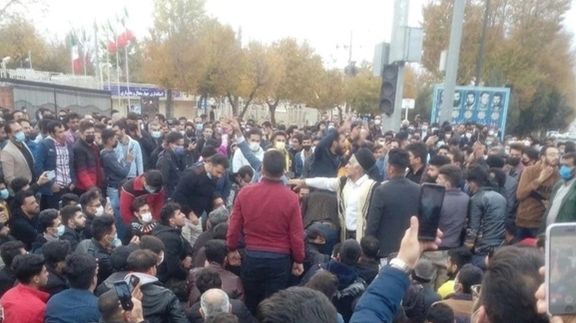
Iran ranks 150 out of 180 countries in the 2021 Corruption Perceptions Index (CPI), one stop lower than last year, which weakens its struggling economy.
According to the annual list released by Transparency International on Tuesday, the Islamic Republic scored 25 on a scale of zero to 100, where zero means highly corrupt and 100 means very clean.
Each country’s score is drawn from 13 different corruption surveys and assessments by a variety of reputable institutions, including the World Bank and the World Economic Forum.
The CPI, the most widely used global corruption ranking in the world, assesses countries and territories annually on how corrupt their public sector is perceived to be by experts.
It covers manifestations of public sector corruption, including the misuse of public power for private benefit without facing consequences, bribery, diversion of public funds, nepotistic appointments, and access to information on public affairs/government activities.
In 2013, the last year of Mahmoud Ahmadinejad’s presidential tenure, Iran was 144th among 177 countries. It rose to 130 in 2017, suggesting a decline in corruption, but has dropped again since then.
Iranian authorities routinely criticize corruption in the country, with Supreme Leader Ali Khamenei having issued an anti-corruption decree, demanding the heads of the three branches of government not slacken in efforts against graft.
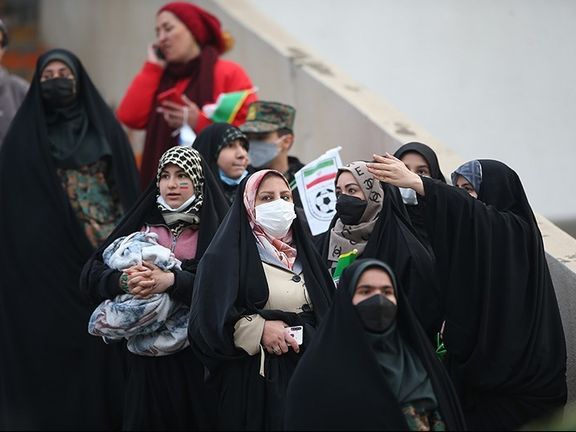
The Iranian national football team defeated Iraq to book a berth for the 2022 World Cup in front of a sparsely populated stadium and just enough women to satisfy FIFA supervisors.
With Asian qualifiers now into its final stages Iran faced Iraq at Tehran’s Azadi stadium on Thursday and won thanks to a close-range solo by Mehdi Taremi to become the first country to earn its place at the year-end tournament in Qatar.
The Islamic Republic, which has barred female spectators from stadiums for years claiming it would violate religious rules of decency, was forced by world soccer body FIFA to allow women to attend a match in 2019.
A month after the FIFA warning in September that year, Iranian women were allowed to watch a World Cup qualifying match between Iran and Cambodia.
Despite the FIFA order to allow women into stadiums without restriction and in numbers determined by demand for tickets, Iran announced 2,000 of the 10,000 tickets for the match against Iraq were exclusively reserved for women and they had to sit in segregated areas.
The number of women allowed to buy tickets was less than the match against Cambodia and there were many women who gathered outside the gates, purportedly because many of the promised seats were given to women cherry-picked by the authorities.
There were also reports that a dozen female reporters and journalists were not allowed into the stadium.
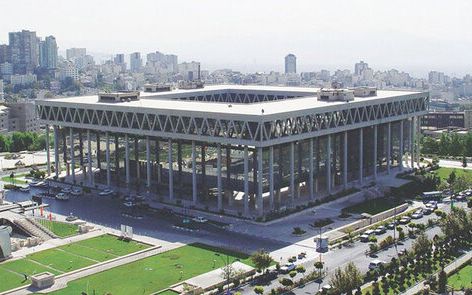
A spokesman for the Mujahedin-e Khalq (MEK) has denied any knowledge of the apparent hacking of IRIB television and radio channels Thursday.
Shahin Qobadi, an MEK spokesman in Paris, told Iran International Thursday that the group had become aware of the incident only when it happened but that the hacking might have been the work of supporters in Iran.
Iran's state media have attributed the ten-second disruption – which included pictures of the MEK leaders Massoud and Maryam Rajavi – to the MEK, using the Quranic term ‘monafeqin’ (‘hypocrites’) that officials routinely apply to the opposition group, which is based in Albania.
It is not clear whether the incident resulted from internet hacking or from manual intervention in broadcasting studios. The state broadcaster’s deputy for technology, Reza Alidadi, told the IRIB News Channel that those behind the incidents, who he called hackers, had probably accessed IRIB servers and that the “complicated attack” was being investigated.
Alidadi also suggested that countries where equipment had been made could have installed “bugs.” A source in Iran familiar with IRIB told Iran International that several employees were being questioned by security forces.
The programs of four IRIB television − including Channel One, News Channel, and the Arabic-language Al-Alam − broke off abruptly Thursday afternoon and images of the group's leaders, Massoud Rajavi and his wife Maryam Rajavi, appeared on the screens while a man's voice chanted “Salute to Rajavi, death to Khamenei.”
This was followed by a few seconds of a speech by Massoud Rajavi, who disappeared during the 2003 United States invasion of Iraq, a time when the MEK was allied to Saddam Hussein and occupied a large building in Baghdad.
The interruption also featured an image of Supreme Leader Ali Khamenei with a red cross over his face and a graphic demanding his death. The name of a social media account pointing to the MEK was shown on the screens with the images. Anti-regime, pro-MEK slogans were heard on the affected radio channels.
While Massoud Rajavi is widely thought to be dead, the MEK insists he is merely in hiding for his own security. After Saddam’s fall in 2003, MEK members were moved to Camp Ashraf north of Baghdad, which had been established in 1986 during the Iran-Iraq war. In 2013, the MEK was transferred by the US to a new compound in Albania, where it is active on social media.
The MEK, which the US listed between 1997 and 2012 as a ‘foreign terrorist organization,’ had close links to senior members of the Trump administration and to Trump allies, including John Bolton and Rudy Giuliani.
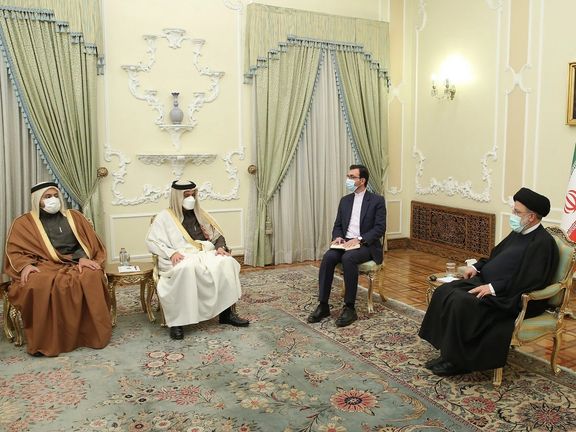
Qatar has invited Iranian President Ebrahim Raisi to attend the upcoming meeting of the Gas Exporting Countries Forum (GECF).
During Thursday’s meeting in Tehran with Iranian foreign minister Hossein Amir-Abdollahian, foreign minister Mohammed bin Abdulrahman Al-Thani delivered the Qatari Emir’s invitation. The Sixth GECF Summit of Heads of States and Governments is slated for Doha in February.
GECF, which is headquartered in Doha, is an inter-governmental organization of the world's leading gas exporters aimed at increasing coordination. Iran and Qatar share the world’s largest gas-field, with the Iranian part known as South Pars and Qatar’s as North Dome.
Earlier in the day, Iran's official news agency said Al-Thani’s visit should not be seen as facilitating direct talks with Washington, so responding to suggestions in domestic and foreign media that al-Thani aimed to thereby improve prospects for reviving the 2015 nuclear deal.
The visit took place with Emir Sheikh Tamim bin Hamad al-Thani due to meet United States President Joe Biden at the White House January 31 to discuss global energy security as well as the Vienna nuclear talks.
Washington is liaising with energy-producing states and firms over possible diversion of supplies to Europe should Russia invade Ukraine. Moscow supplies one-third of Europe’s natural gas and might stop winter deliveries if sanctioned by the US or western Europe over any action in Ukraine.